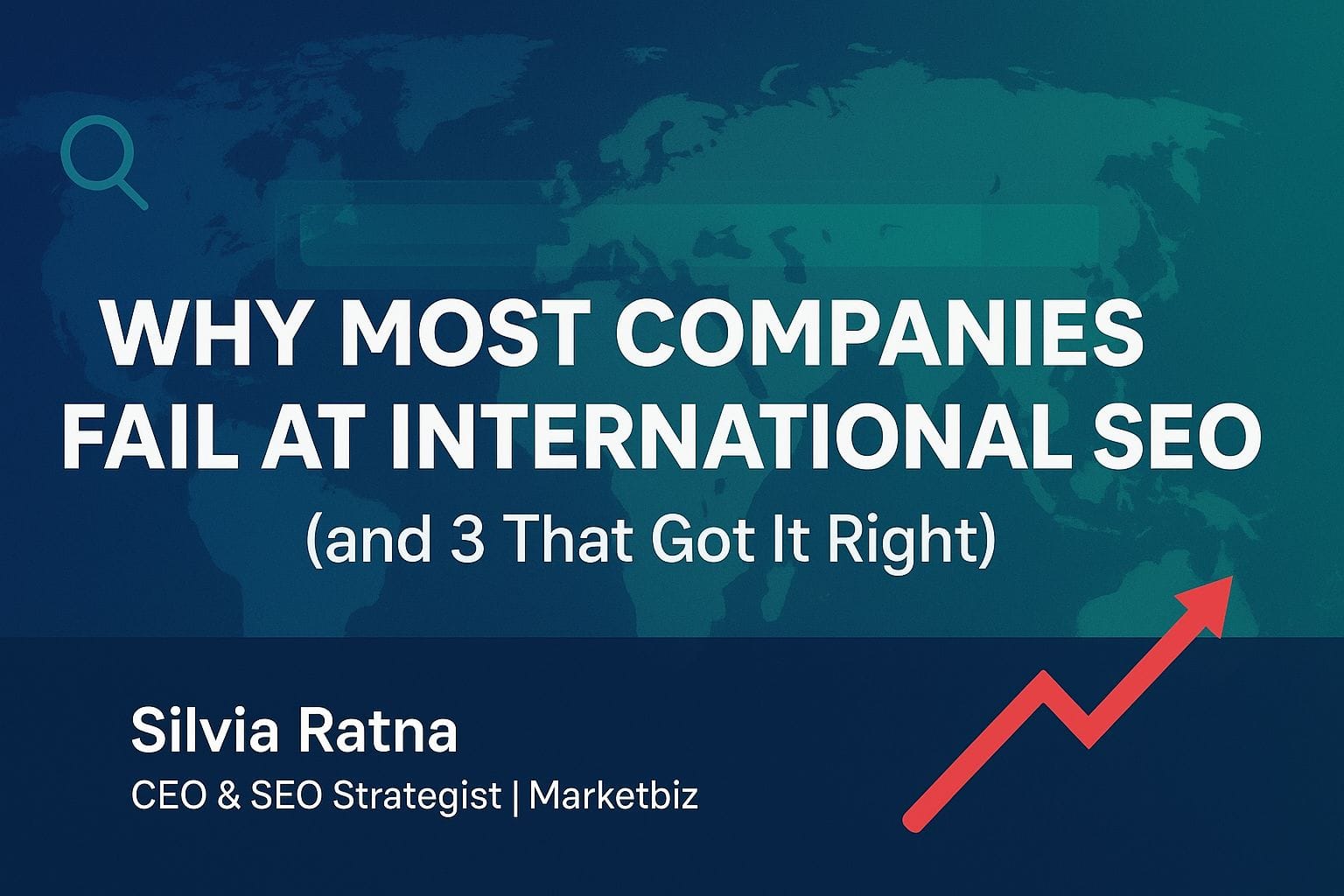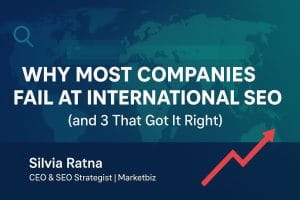When I first started in SEO over 15 years ago, most of my work was helping local businesses in Indonesia get found online. Back then, “SEO” often meant making sure you ranked for your city name plus your service simple, tactical, and mostly domestic.
But I learned something quickly: what works in one market doesn’t always work in another. A keyword that performs in Jakarta may be irrelevant in Surabaya, and what resonates in Bali won’t necessarily land in Singapore.
That lesson has stayed with me as I’ve advised companies expanding internationally. International SEO isn’t about scaling domestic success, it’s about creating genuine value for different markets. It requires understanding:
- How people search differently across regions
- The cultural nuances that shape intent
- The market-specific needs that define relevance
I’ve done research that the companies that get this right don’t just win rankings they win trust. Let’s look at three international businesses that mastered this approach.
1. Airbnb – Localized Search for Local Trust
Airbnb knew they couldn’t grow globally with a “one keyword fits all” mindset. In Paris, people searched for “holiday apartments.” In New York, it was “short-term rentals.” In Bali, it became “sewa villa harian.”
Instead of pushing a uniform message, Airbnb built localized landing pages, localized keywords, and localized experiences. That’s why they show up in the right search results for the right markets.
CEO takeaway: Global success is built one local market at a time. In SEO, cultural and linguistic context matter more than scale.
2. HubSpot – Educating Before Selling
HubSpot didn’t just promote their CRM. They invested heavily in content SEO, creating blogs, guides, and tools that answered the exact questions business leaders were asking.
This wasn’t about short-term lead generation. It was about building authority and trust across markets. Today, HubSpot ranks for competitive global terms like “marketing automation” and “what is CRM,” bringing in millions of visitors organically.
CEO takeaway: The brands that lead are the brands that educate. SEO isn’t just visibility it’s credibility earned through value.
3. Zalando – Technical Precision at Global Scale
Zalando, one of Europe’s largest e-commerce platforms, faced the daunting challenge of optimizing millions of product pages across multiple markets.
Their success came from technical SEO mastery: clear site architecture, automated metadata, fast-loading mobile-first design, and canonical tags to avoid duplicate content.
It’s not flashy, but it made them a dominant player in Europe’s competitive fashion industry.
CEO takeaway: At scale, SEO is infrastructure. Without strong technical foundations, global growth stalls.
Why This Matters for Leaders
Airbnb localized. HubSpot educated. Zalando optimized technically. Each took a different path, but the principle was the same: they built genuine value for their markets, not just scaled what worked at home.
For CEOs and business leaders, this matters because:
- Paid ads disappear when budgets stop.
- SEO, done right, builds long-term equity across markets.
- International growth depends on meeting customers where they are, in language and context that feels native.
That’s why I always say: SEO is not a marketing tactic it’s a business growth strategy.
My question to you: Which global or even Indonesian brands do you think truly understand SEO and local market value? I’d love to hear your thoughts.
Start your consultation today with Marketbiz and make your business a success story in Indonesia.






